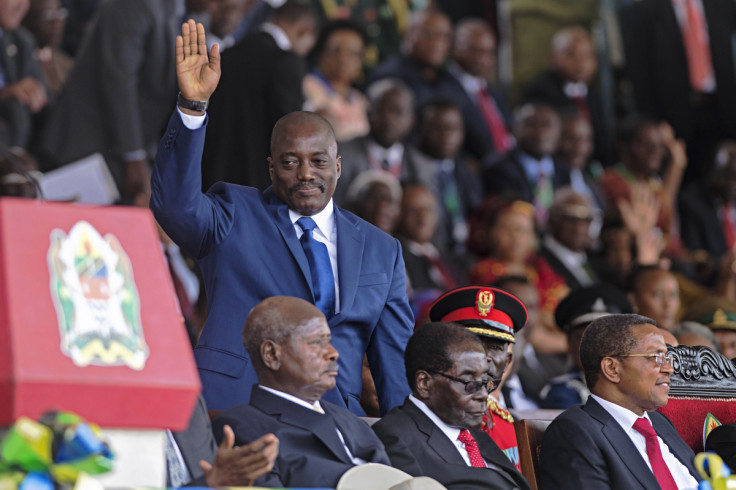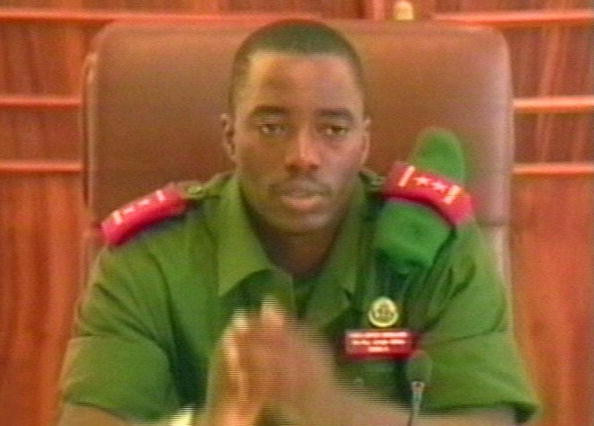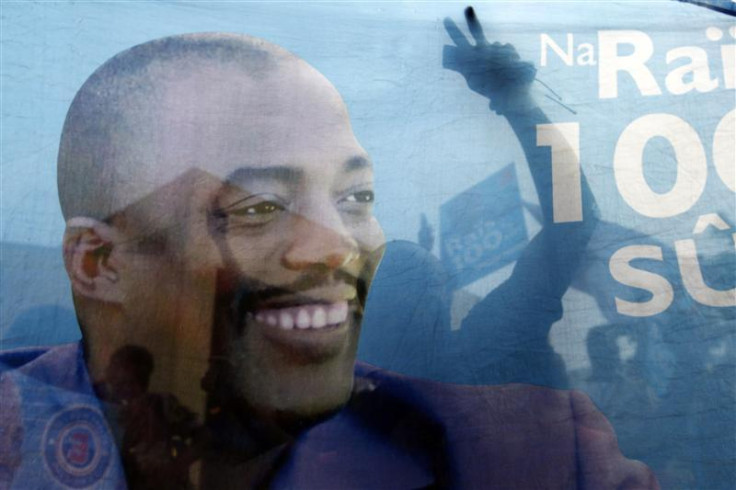Joseph Kabila: From kadogos commander to DRC's youngest leader

Joseph Kabila, current President of the Democratic Republic of Congo (DRC), is due to step down this November having served two consecutive terms in office. The leader, who took the lead of the African nation in 2001, has been accused of trying to amend the constitution or delay the election to hold on to power.
Kabila has not made any public comment regarding his political career, while his spokesperson has maintained the leader will respect the constitution.
As the 2016 presidential election looms in a country marred by decades of war, political instability and human rights abuses committed by militants and government troops, IBTimes UK looks at Kabila's rise to power as many suspect the leader could become the latest African president to amend his country's constitution to prolong his leadership.
Early life and military career
Kabila was born in the eastern DRC 's province of South-Kivu, on 4 June 1971. His father, Laurent-Désiré Kabila, was a member of the rebel Alliance of Democratic Forces for the Liberation of Congo (ADFLC) and became the president of the country following a coup in 1997.
Joseph Kabila attended military schools in Tanzania and Uganda. In 1996, he became the commander of the "kadogos", a Swahili word meaning "the little ones". One year later, his father launched a campaign to oust the then leader Joseph-Desiré Mobutu - also known as Mobutu Sese Seko - in the Republic of Zaire ( DRC's official name between 1971 and 1997).
Mobutu's ousting - achieved with the help of neighbouring countries Rwanda, Uganda and Burundi - sparked the country' s first civil war, which caused the death of hundreds of thousands of people, with estimates suggesting the number could be as high as 800,000 deaths.
When his father took control of the country in 1997, Kabila travelled to China to receive further military training at the National Defence University in Beijing. After returning to his homeland, he was appointed chief of staff of the Land Force, a role he kept until his father was assassinated in 2001.

Presidency
Although they previously supported Kabila's father, Rwanda and Uganda subsequently aligned themselves with the Congolese Rally for Democracy (CRD) rebel group, which started a campaign against Kabila's father in 1998. The campaign culminated in the Second Congo War - also known as the African World War - which caused more than 5 million deaths and officially ended in 2003.
Three years after the beginning of the war, Kabila's father was shot dead by one of his bodyguards amid allegations that the murder had been plotted by Rwanda.
Ten days after his father's assassination, Kabila - aged 30 - was chosen by government members as the country's new leader. Kabila tried to end the civil war by negotiating with rebel groups supported by Rwanda and Uganda. In 2002, the government and rebel groups signed several peace agreements aimed at tackling violence and, in 2003, a transitional government headed by Kabila was created.
When Congolese people headed to the polls in 2006 following the approval of a new constitution, Kabila was elected as president. His mandate was renewed in 2011, amid allegations the election was not held in a transparent way and did not reflect the real will of the population.
Although the Second Congo War was declared over in 2003, hostilities and frequent attacks on civilians, especially in the north east, have continued and there are at least 50 different armed groups currently operating along DRC's eastern and western borders.

Kabila's supporters and opponents
A timetable reportedly prepared by the country's electoral commission (CENI) suggested earlier in January that the presidential election could be delayed by a minimum of 13 months and 10 days.
The timetable was rejected by DRC's opposition, but Kabila's supporters - who live mainly in the country's east - argued that in order to guarantee free and democratic election, polls should be postponed as the country was not ready to hold an election.
In January 2015, the government introduced an electoral law reform that required a national census to be carried out before the election. Hundreds of people took to the streets to protest against the government's decision, seen as a way to delay election. However, thousands of pro-Kabila supporters also took to the streets of Lubumbashi to show their support for the president.
Unpopularity
After being in power for 15 years, Kabila is widely unpopular among the Congolese population, according to some analysts. Phil Clark, reader in international politics at Soas University, told IBTimes UK: "There is already a huge amount of anger in DRC at the possibility that this election could be postponed.
"The election is important in Congo because there is so much frustration with Kabila's government. Kabila has really failed to bring peace and stability in Congo or any real economic development," he continued.
"One of the things that has been very problematic in Congo is that the opposition is very weak. This is the first time that we have see an attempt of a much more coherent opposition."
Check out our Flipboard magazine - Democratic Republic of Congo by IBTimes UK
© Copyright IBTimes 2025. All rights reserved.






















